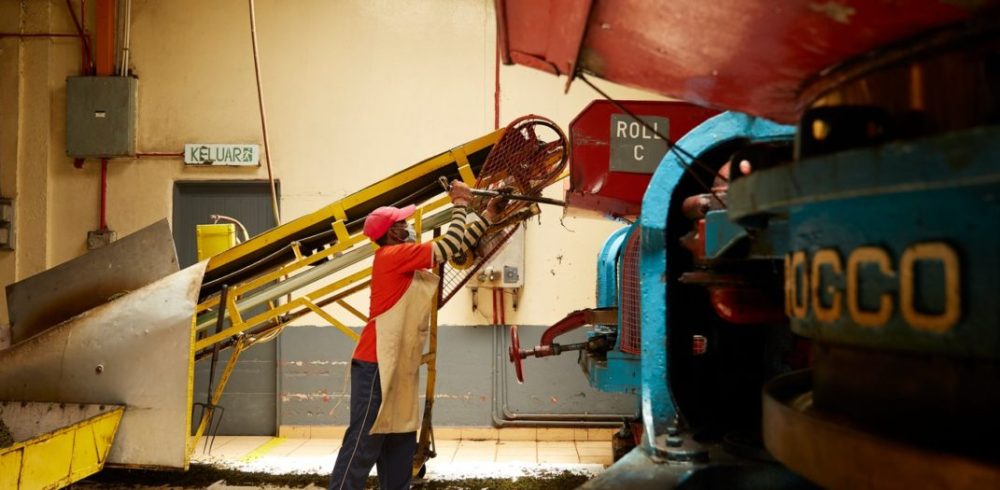Global trade is never out of the headlines. In the UK, the implementation of a likely Brexit and how manufacturers can deal with it has dominated news pages, while the same has been seen in the US with the impact of tariffs and an ongoing trade war between the US and China.
But what’s the reality?
There are numerous stories about the state of the global manufacturing industry but what’s actually happening? How has regulatory change affected the business plans of process manufacturers, and if it has, what kind of steps have they been taking to mitigate the effects of global upheaval?
To answer these questions, Sage conducted research by questioning 900 professionals from mid-sized process manufacturers in the UK and US, which make products such as food, drink, gasoline, oil and plastics.
The responses revealed interesting insights into how the likes of the UK preparing to leave the European Union (EU) and the United States-Mexico-Canada Agreement (USMCA) trade deal have affected them, what they were doing to take advantage of opportunities, and how they are approaching any threats to come.
Impact of regulatory change
Our research reveals 62% of UK process manufacturers are being affected due to their need to prepare for regulatory change. This is a high figure, and is much to do with due to Brexit talks, which have only increased business uncertainty since the UK voted, in June 2016, to leave the EU.
Changes to import and export conditions have affected the decision making of process manufacturers, with 96% saying they will have an impact.
Meanwhile, 32% of UK process manufacturers say they are having a very high impact on their strategic decision-making, while 50% state they will have a high impact.
Manufacturers have had to understand how various Brexit and USMCA scenarios would could affect their supply chains and the movement of goods including:
- Tariff exposure and other costs.
- Compliance – irrespective of any deals made (such as free trade agreements between the UK and EU or the US and China) or a no-deal Brexit (and the transition to World Trade Organisation rules) goods will need to be declared, with custom procedures applied and opportunities for tax/duty planning.
- Relationships with suppliers – if manufacturers rely on certain components, understanding how this will work will be a priority as lead times may increase.
- The security of customer relationships and the effect on demand volume, contract terms, pricing and rebates.
- The potential loss of research and development grants, and the impact on product marketing and procurement.
UK manufacturers will have prepared by examining their supply chains closely, taking care to understand where delays may potentially hit the business and asking their suppliers about their own plans for regulatory disruption.
They may have applied to become an Authorised Economic Operator (AEO) – an accreditation that allows businesses to register to apply simplified customs procedures to fast-track their goods through customers border controls, providing assurance to HMRC that their import/export practice is secure.
However, supply chain strategies shouldn’t have been just be about mitigation.
Forward-thinking manufacturers will have been looking at challenging the status quo in their supply chains and seeing how things could work differently, through, for example, reducing lead times and deferring the time when any duties need to be paid.
Thinking differently, thinking local
With regulatory change presenting challenges when it comes to international trade, the research revealed that manufacturers are looking at the value of product created locally and the associated onshoring possibilities.
In the UK, the figures suggest manufacturers believe “Brand Britain” holds sway with global customers.
They see a business opportunity in creating local, artisan goods with higher prices than goods that were cheaper due to mass production or cheaper raw materials. They understand that being made in Britain can be regarded as a badge of quality, even if it is priced higher.
In the food and beverage manufacturing industry, an increasing demand for craft beer is a good example of consumers moving away from dominant international beer brands and towards newer home-grown craft beer products.
This taps into the British pint drinker’s love of variety, better quality, and a passion for brands with local provenance.
One of the most high-profile examples of this in the past few years is Brewdog, which was founded in Ellon in Scotland, where its beer is still brewed.
In addition, consumers might want to support their local economy, reduce environmental impact with goods that don’t need to be shipped globally, and in food and beverage manufacturing, understand the provenance of what they buy.
This trend for local products isn’t just tied to food and beverage.
In the UK, US and Canada, 59% of chemical manufacturers also saw customer demand for locally produced goods and value in not having to cross international boundaries where currency fluctuations could impact their profit margins.
It certainly shows an opportunity for new suppliers and partners to emerge, which could dramatically alter international and domestic sourcing strategies and supply networks.













